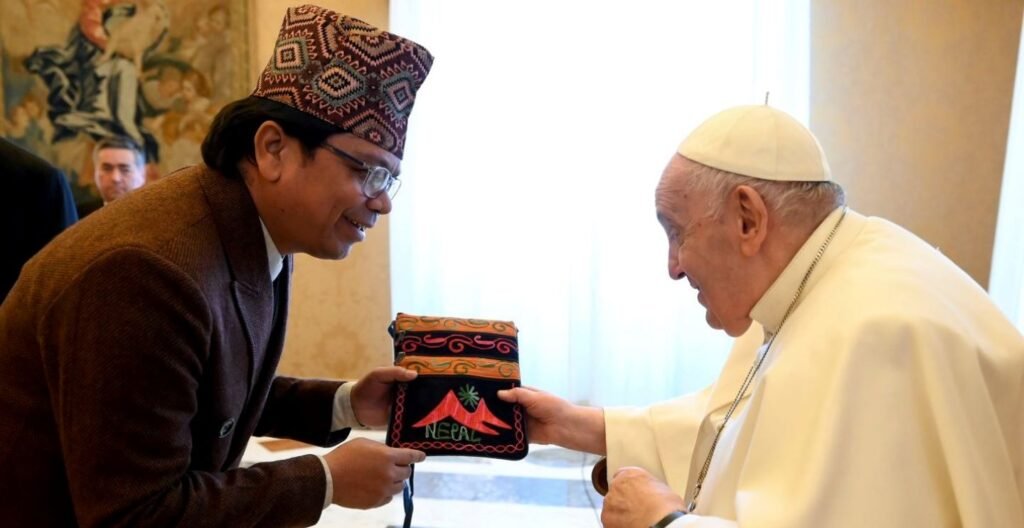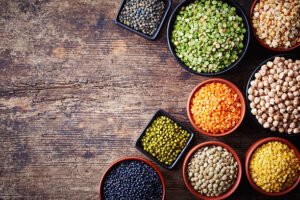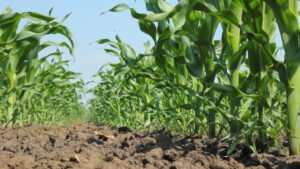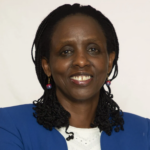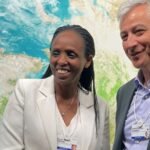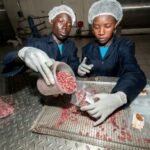By Panagrimedia Reporter, February 11, 2023, Meeting with Pope Francis on Friday, 40 indigenous leaders raised their concerns about the toll that extractive and exploitive industries fuelling the global economy were having on growing inequality, preventing access to basic human rights and hindering environmental sustainability.
The indigenous leaders, who were in Rome to attend the 6th Global Meeting of the Indigenous Peoples’ Forum hosted by the International Fund for Agricultural Development (IFAD), hand delivered their message during a private audience with His Holiness, Pope Francis.
“The dangers facing our world have not only persisted since our last encounter in 2019 but have grown even more dire in many respects. Human beings continue to destroy nature, pollute our waters, and ignite our jungles and forests,” said the indigenous leaders in their message.
The scramble for natural resources in areas where they live, including timber-rich rainforests and mineral-rich mining areas continues to see encroachments on Indigenous Peoples’ lands and territories by extractive industries. The lack of effective support and protection often leads to a variety of incidence of intimidation, extreme violence and even assassination. In 2020, one-third of the 227 climate and environmental activists murdered globally came from indigenous communities; almost three out of four murders took place in Latin America.
IFAD President Alvaro Lario, also in attendance, emphasized the role of Indigenous Peoples as climate leaders who are essential to protect biodiversity and ensure a viable future on Earth for future generations.
“No one, no agronomist or development professional will ever understand nature as deeply as the Indigenous Peoples. Nurtured over millennia, their knowledge of the Earth’s plant and animal life remains unrivalled,” said Lario.
More than 476 million people from 90 countries define themselves as Indigenous Peoples. And while they represent roughly 6 per cent of the world’s population, they account for 18 per cent of the world’s poorest people. Seven out of 10 are native to the Asia and Pacific region. Indigenous Peoples help preserve a significant portion of the world’s biodiversity extending across one-quarter of the globe’s surface.
“Indigenous Peoples are displaying tremendous resilience and creativity as climate leaders and stewards of nature. They are crafting practices and applying unique approaches that are invaluable in confronting the climate crisis,” added Lario.
Despite their traditional knowledge, the climate crisis is seriously threatening their livelihoods. Farming, pastoralism, shifting cultivation, rotational agriculture, fishing, and hunting and gathering are all dependant on a predictable climate. Indigenous Peoples are particularly vulnerable to the effects of the climate crisis due to their close relationship with the environment.
Communities continue to defend their rights, as reflected in the UN Declaration on the Rights of Indigenous Peoples, and seek spaces for effective collaboration and advocacy in national and international fora such as this week’s forum at IFAD, while they fight for a place in the global climate debate, and be part of decisions that affect them.
Meanwhile, the right to free, prior and informed consent (FPIC), including the right of Indigenous Peoples to participate in any decision-making processes that affects them, continues to be overlooked by many, due to a lack of awareness, understanding and recognition of their perspectives, actions and governance systems.

